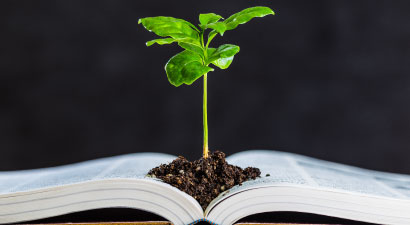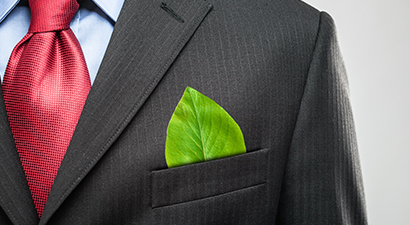Impacts of Plastic Pollution on our Marine Economy and Environment
South Africa's marine environment extends along more than 3000 km of coastline and, is rich in biodiversity with over 10 000 recorded marine plant and animal species. Many of these species form the basis of our fisheries and marine economy, including hake, anchovy, tuna, snoek, rock lobster and abalone which are commercially exploited along our west coast, and squid, line fish and a wide range of intertidal resources on our east coast which provide an important food source and livelihood for many coastal communities. Our marine life also support a number of recreational and tourism activities, including recreational fishing, aquaculture, scuba diving, whale watching and shark-diving.
According to the South African government, the fisheries sector is estimated to be worth 6 billion Rands per annum, directly employing over 27 000 people and contributing nearly 1% to our GDP. The marine sector and our oceans are however facing a number of environmental threats, most notably from the proliferation of single use plastics from mainly land-based sources which move through several rivers and streams and end up in our oceans.
According to the sixth Executive Director of the UN Environment Programme, Erik Solheim, It is estimated that plastic accounts for well over 80% of all ocean litter and that at the current rate of dumping, in 2050 there will be more plastic in our oceans than fish. In a study that was published by Dr Jenna Jambeck, of the University of Georgia in 2015, South Africa was ranked 11th in a list of 20 countries that generated the highest volumes of mismanaged plastic waste that ends up in the ocean, worse than Algeria and several other developing countries.
Plastic waste poses a serious threat to marine species such as fish, seals and turtles which are often entangled by the plastic or sometimes mistake the plastic waste as food and ingest its material. These species eventually die from starvation since the plastics fill up their stomachs but cannot be broken down by their digestive system. Some marine species die from eating particles of contaminated plastics. This has a negative impact on the sustainability of the marine economy and the communities that depend on fishing as their livelihood.
The COVID-19 pandemic has also contributed to an increase in the number of single use plastic and other items by households, businesses and medical facilities in the form of gloves, masks, and other PPE material which form part of contaminated waste that may pose a risk to marine life in not properly managed and disposed of in an environmentally sound manner. The World Economic Forum has recently reported an increase in the number of Covid related waste flooding the oceans in several European countries such as France and the United Kingdom. While there has been no major reports of Covid waste along our South African coast lines however, with the easing of the lock down restrictions and more people being allowed to move freely and to travel between provinces, there is a potential of seeing a similar surge in Covid waste along our coastlines.
Despite these threats to our marine life and economy, South Africa has promulgated a number of domestic laws which are aimed at the protection and conservation of our marine resources:
- The Marine Living Resources Act 18 of 1998 (MLRA) regulates the utilisation of marine living resources in South Africa through the management and protection of marine species and enforcement against illegal marine activities including pollution.
- The Marine Pollution (Control and Civil Liability) Act 6 of 1981 which provides for the protection of the marine environment from pollution by oil and other harmful substances from ships, tankers and offshore installations.
- The National Environmental Management: Integrated Coastal Management Act 24 of 2008 (NEMICMA) was promulgated to establish a system of integrated coastal and estuarine management in South Africa. Together with the National Environmental Management Act 107 of 1998 (NEMA), NEMICMA plays an important role in protecting our marine life and their respective habitats by imposing a duty on all persons to avoid causing adverse effects on the coastal environment;
- The National Environmental Management: Protected Areas Act 57 of 2003 is a key regulatory tool for providing protection and conservation of ecologically viable areas representative of South Africa’s biological diversity, in particular our marine environment. In the last 18 months alone, over 20 marine protected areas were declared under this Act which is critically important for the conservation of our marine species and managing pollution in these areas;
- The National Environmental Management: Biodiversity Act 10 of 2004, which makes provision for the identification and special protection of threatened marine ecosystems and species and the control of marine alien and invasive species;
- Our marine environment is also protected under the National Environmental Management: Waste Act 59 of 2008, which is the principal waste Act in South Africa which creates an obligation for every person who generates, stores, collects, transports and manages waste to do so in an environmentally responsible manner and it prohibits the littering of waste on water resources such as rivers and oceans, and encourages the recycling of waste; and
- Local Coastal Management By-laws promulgated by municipalities whose jurisdiction extends along the coastal lines. These By-laws make provision for the management of marine life and prohibition of pollution on the oceans.
In addition to the above laws and in an effort to encourage the recycling of plastics, on 07 August 2020, the Minister of Forestry, Fisheries and Environment published her intention to amend the Plastic Carrier Bags and Plastic Flat Bags Regulations which fall under the Environment Conservation Act 73 of 1989, by introducing a proposed phased approach for plastic carrier bags and plastic flat bags to be made from a minimum of 50% post-consumer recyclate from 01 January 2023 and, from 1 January 2027 to be made from 100% post-consumer recyclate.
Post-consumer recyclates are materials generated by households or by commercial, industrial and institutional facilities in their role as end-users of the product which can no longer be used for its intended purpose. Amendments to this legislation will hopefully encourage the increased recycling of plastic materials and reduce the number of plastics which end up in our oceans. Government’s initiative to unlock the ocean economy known as Operation Phakisa, has estimated that South Africa’s ocean economy could generate an estimated GDP contribution of 129 to 177 billion Rands by 2033 and create over 600 000 jobs. However, the threat of plastic pollution including single use items that are dumped on our oceans and rivers could derail the economic ambitions of our oceans economy and affect the livelihood of many fishing communities.
According to Plastics SA, there are many beneficial uses of plastic which includes reducing other forms of waste and, the issue of plastic pollution, in particular single use plastics which land up in our rivers and oceans through illegal dumping is a behavioural issue that needs to be addressed by every citizen and our communities including businesses. While South Africa has developed a number of laws to protect our marine environment, the lack of community educational programmes on the impacts of plastic pollution compounded by the lack of adequately resourced environmental management inspectors contributes to the rising tide of marine pollution.
That said, there are several initiatives that interested citizens can participate in to reduce the levels of marine pollution, such as taking part in local beach clean-up projects and other initiatives such as the Litterboom project which uses a large pipe to trap all surface level plastics along several tributaries that lead to the ocean. These and other initiatives require the support and participation of normal citizens to reduce the impacts of plastic pollution on our marine economy and environment.





